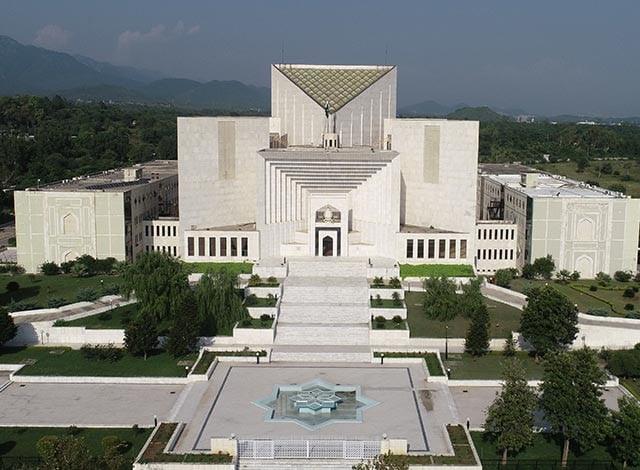Islamabad:
The judges of the Supreme Court are required to obtain a “non-objection certificate” (NOC) of the chief judge of Pakistan (CJP) for having traveled abroad.
Recently, a presidential order was promulgated by President Asif Ali Zardari, who is called judges of the Supreme Court (leave, pension and privileges) (modification) of the 2025 order, in which an amendment was brought to paragraph 14 of the order of President 2 of 1997.
The modified para 14 indicates that the CJP has been authorized to grant or refuse leave, in Pakistan, or to revoke or reduce the leave already granted to judges.
Following the amendment, a permanent general ordinance was made by the registrar SC Muhammad Salim Khan, which says that as a established principle, all the time of a judge is available to the State / Supreme Court, including holidays, holidays and holidays, therefore, it has therefore become essential to regulate the powers of chief judge as by the SOPS.
The SOPs say that the CJP the first time exercises these powers with reasonable diligence and in the interest of the public service.
Second, all kinds of leave will be sought in advance, supported by convincing reasons.
Third, while performing abroad, “no certificate of objection” will be asked for the chief judge of Pakistan.
Fourth, a judge, on leave / vacation, will provide his current address and
contact details.
Finally, it is only in the case of official visits abroad that the Ministry of Foreign Affairs will be requested for the necessary facilitation and protocol.
Lawyers are wondering about the issue of new sops. A section of lawyers says that it is an attempt to control the judges, in particular those who question the current functioning of the judiciary during events organized outside the country.
The former additional prosecutor Tariq Mahmood Khokhar said that the restrictions of travel in itself are not in conflict with judicial independence provided that they are purely administrative, applied fairly and operate in the internal framework of the judiciary, and not under executive control. In this case, the goal seems to be supervision, not administrative, “he added
Khokhar states that it is potentially a control and intimidation tool. Judicial independence means independence in decision -making, but the travel restrictions of judges can violate independence if the authorization is used in a selective or punitive manner or under the interference of executives. “”
“The amendment must be safeguarded against abuse. The United States and the United Kingdom do not have such restrictions. In India, authorization is granted transparently, also and purely for administrative purposes.” In Pakistan, we had a toxic story.
Travel restrictions have been used to control judicial independence: judge Mansoor Ali Shah was denied authorization to go to Saudi Arabia.
The IFTIKHAR CHAPHARY CJP and other judges of the Supreme Court were prohibited from traveling abroad. The obligation of judges to share their travel plans and addresses abroad is a serious encroachment of their privacy, “he adds.




